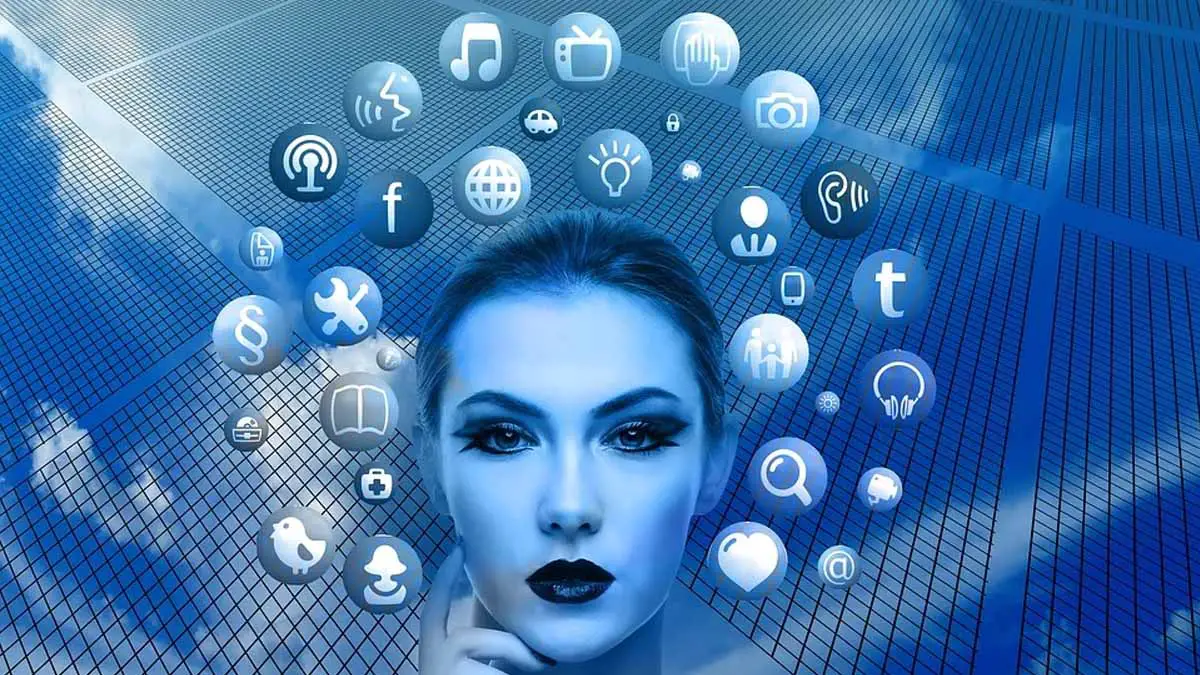
The research available on this topic of addiction to social networks is mainly based on people telling their own experiences, which is often unreliable. Most studies to verify some type of disorders focus specifically on Facebook.
Some of this research reviews the main findings of science around 11 aspects: stress, humor, anxiety, depression, sleep, addiction, self-esteem, well-being, relationships, envy and loneliness.
The good or bad mood of young people may depend on their addiction to social networks
A good or bad mood can be triggered through social media, according to researchers at the University of California. These assessed the emotional load of more than 1 billion status updates from more than 100 million Facebook users between 2018 and the present.
A study published in the journal Computers and Human Behavior revealed that individuals who claimed to use seven or more different social media platforms were more than three times likely to display symptoms of severe anxiety than those who only used two.
Another study that took more than 700 students as subjects, found that depressive symptoms, such as low mood or feelings of lack of self-esteem and hope, were associated with the quality of online interactions.
A similar study in 2019, this time from a sample of 1,700 people, concluded that those who use more social media platforms have a three times greater risk of suffering depression and anxiety.
Its authors suggested that the reasons for this ranged from having suffered episodes of cyber bullying, a distorted perception of the lives of others, and feelings such as, that time spent on social media is time wasted in their lives.
However, scientists are investigating how social media can be used to diagnose depression.
The risk is ever latent
 We humans used to spend nights in darkness, but now we are surrounded by artificial lights day and night. Studies have shown that this can inhibit the production of a hormone called melatonin, which the body generates to facilitate sleep.
We humans used to spend nights in darkness, but now we are surrounded by artificial lights day and night. Studies have shown that this can inhibit the production of a hormone called melatonin, which the body generates to facilitate sleep.
The blue light emitted by cell phones and computers are considered the main culprits. At the University of Pittsburgh, in the United States, in 2019 a group of 1,800 people between 18 and 30 years old were asked about their social networks and their sleeping habits.
Those responsible for the survey detected a relationship between the former and insomnia disorders, and concluded that blue light from the devices was one of the causes.
The frequency with which they accessed the networks was the most determining factor when it came to predicting sleep problems, rather than how long the subjects stayed connected, which led researchers to talk about a possible “obsession with the checkup of personal accounts on the networks.”
Take into account that technology is necessary for many things in daily life, that thanks to it, we can communicate fromlong distances, investigate, send documents, in short, an endless number of things for the human being and every day it will be more evolutionary.
Let’s learn to use technology wisely and don’t let it take away part of our life in society. It is very important to share in real life with the people around you, to enjoy nature, and all that the world offers us.

